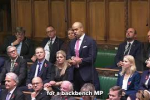
The publication this week of the University of Bristol’s report into the distribution of UK betting shops, The Geography of Gambling Premises in Britain, has once again highlighted how the high street presence of betting shops can be a blight on local communities, particularly where gambling operators are seen to be exploiting deprived areas via an excessive presence.
With the review of the 2005 Gambling Act now underway, the Government should ensure that it looks at the desirability of betting shops within town centres struggling to recover from the impact of both the pandemic and changes in shopping habits, as well as addressing the impact that betting shops can have.
As a resident of Haringey, listed in the report as one of the top ten local authorities for concentration of betting shops, and within the top three in London, I have long been interested in how we can reduce the clustering of betting shops within specific areas.
Within half a mile of my home there is a staggering total of seventeen betting shops. Whilst this is a by-product of the Fixed Odds Betting Terminal limitation of four machines per shop (meaning it was still lucrative for an operator to have two shops in close proximity, doubling the number of machines), I struggle to see how anyone would assess this to be anything other than a cynical exploitation of a vulnerable local population; Haringey is the fourth most deprived borough in London.
The forthcoming review of the 2005 Gambling Act will seek to update legislation written for the analogue betting industry in the digital age. However, whilst the current focus is upon online habits rather than the high-street, the significant nationwide presence of betting shops in poorer areas should receive equal scrutiny, particularly if aspirations of levelling up those areas are to be realised.
Following the publication of the University of Bristol’s study, how can the Government not factor its findings into its own review of the Gambling Act, and how would this not contradict the belief that gambling is an individual choice, quite aside from the issue that the UK gambling industry supports over 100,000 jobs, and in 2019 generated £4.5 billon in taxation for the Treasury?
As per the findings of the University of Bristol study, the distribution of betting shops is a key facet. As part of their review, the Government should strive to conduct a land-based gambling assessment of the current distribution of betting shops in tandem with its analysis of how best to bring legislation up to date.
The study showed that 21 per cent of gambling premises are located within the most deprived decile of areas in Britain, whilst conversely only two per cent are in the least deprived. The combination of post-pandemic recovery and the Gambling Act review presents an opportunity to understand why betting shops are distributed in the manner that they are; an aspect not currently in scope of the review of land-based gambling.
Under the Gambling Act 2005, local authorities are prevented from declining a licence for a premises to be used for gambling purposes without supporting evidence of the wider local dangers posed in that specific instance. Giving local authorities the power to reject proposals for betting shops based solely on the view that they are undesirable, or that there is an over-saturation, would be a significant step in preventing the further clustering of betting shops in these areas.
This is a view already supported by the House of Lords Select Committee on Gambling Harm, aligning the powers of licencing committees regarding gambling premises, to those regarding the sale of alcohol.
With the Government committed to levelling up those areas of the country deemed to have been left behind, the vitality and utility of the high street stands to be a key part of this aspiration. The plans unveiled for Stockton-on-Tees and the innovative use of its Future High Streets Fund allocation shows what can be achieved via a general consensus and a desire to uplift an area.
The University of Bristol study illustrates how ‘low-quality’ retailers such as betting shops thrive in locations with low-rents and where other types of retail fare less well. By investing in these high streets and increasing their attractiveness to higher quality shops, or via incentives to community-based initiatives and local start-ups, the Government can be a filip for inculcating a significant change to the fortunes of our rapidly declining town centres.
Whilst the opportunity to gamble should remain one of personal choice, there is a responsibility by both the gambling operators and the Government to provide an environment in which consumers can do so safely and with adequate protection from the pitfalls that problem gambling can swiftly lead to.
To that end, ensuring that gambling operators are not given free rein to exploit areas of socio-economic deprivation via widespread proliferation of gambling shops in areas where potential customers can least afford it should be a key tenet of this policy. With a regulated and safe gambling industry, the Government can also help to achieve its own goals of levelling up the country, by ensuring that those areas most in need are not set up for failure from the off.




